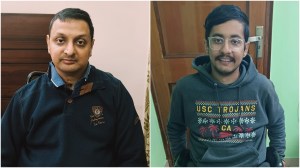Syria slipping
The crisis worsens,as the regime and the opposition trade charges over the twin blasts
Towards the end of a year that saw the Arab world transform in immeasurable ways,the Syrian question looks increasingly intractable and its streets bloodier. After twin bombs exploded in Damascus,killing at least 44,the incident has been used by the Bashar al-Assad government to claim that the country is a victim of terrorist forces. The opposition groups,leading a pro-democracy uprising that has been dealt with a heavy hand by the government,have in turn alleged that the attacks could be the handiwork of the regime itself to influence the Arab League delegation that is in the country to assess the withdrawal of troops from residential areas and the release of political prisoners.
The complexity of Syria makes it a particular flashpoint. It is a country with a mosaic of tribes and sharply divided along sectarian lines. A discontented majority is ruled over by the minority Alawis in the over 40 years of the Assad regime. This is compounded by the proxy war between Saudi Arabia and Iran in the region. When Syria allowed the Arab League observers in,after censures and sanctions by the West and the league itself,there was hope,howsoever tenuous,that the violence may abate. That now seems premature.
The world is calibrating its response to Damascus. The UNSC condemned the bombing,but a Russian draft was not endorsed by the Western countries,which found its position on the government lenient. In the UN,earlier this year,India took an exceedingly cautious approach to the Syrian crisis. However,as the conflict worsens,India,which has a huge stake in the stability of the region,will have to reconsider its traditional stance towards Syria as well as for the entire Middle East.
- 01
- 02
- 03
- 04
- 05































